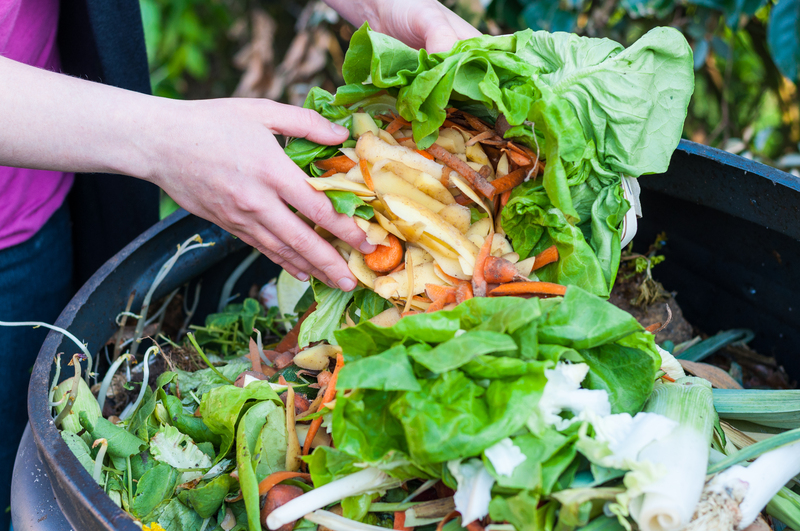Responsible Waste Disposal Methods You Should Know
Posted on 18/01/2025
In an age where environmental concerns have become a primary focus, understanding and adopting responsible waste disposal methods are paramount. Waste management not only helps in maintaining a clean environment but also plays a critical role in resource conservation and sustainability. This article delves into various responsible waste disposal methods that individuals, communities, and industries should embrace to minimize their environmental footprint.
Understanding Waste Segregation
Waste segregation is the first and perhaps most crucial step in waste management. The process involves categorizing waste into different types for ease of recycling and disposal. Primarily, waste can be divided into:
- Organic Waste: Includes biodegradable materials like food scraps and garden waste.
- Recyclable Waste: Non-biodegradable materials such as paper, plastic, glass, and metals that can be reprocessed and reused.
- Hazardous Waste: Waste products that pose a risk to health and the environment, such as batteries, electronic waste, and cleaners.
- General Waste: Non-hazardous and non-recyclable waste, which often includes used tissues, kitchen waste, and certain plastic products.

Recycling and Upcycling
Recycling involves converting waste materials into new products. This process reduces the need for raw materials, conserves energy, and minimizes pollution. Commonly recycled items include aluminum cans, paper products, plastics, and glass. Many communities provide curbside recycling services, making it easier for residents to participate in recycling programs.
Upcycling, on the other hand, takes recycling a step further by transforming waste materials into new, often more valuable products. For instance, old furniture can be refurbished and used in new ways, or glass bottles can be converted into decorative items. Engaging in upcycling not only reduces waste but also sparks creativity and environmental stewardship.
Composting: Nature's Way of Recycling
Composting is the natural process of recycling organic matter, such as leaves, food scraps, and paper, into a valuable fertilizer that enriches soil. By composting organic waste, you decrease the amount of waste sent to landfills, reduce methane emissions, and enhance your garden's productivity.
Starting a compost pile is straightforward. All you need is a mix of green waste (like grass clippings and kitchen scraps) and brown waste (such as leaves and paper). Regularly turning the compost pile ensures proper aeration, speeding up the decomposition process. Once the compost has broken down into a dark, crumbly substance, it can be used to improve soil quality in gardens and potted plants.
Electronic Waste Management
Electronic waste, or e-waste, represents a growing challenge due to the rapid turnover of electronic devices. E-waste contains hazardous substances like lead, mercury, and cadmium, which can cause significant environmental damage if not disposed of properly. Therefore, managing e-waste responsibly is critical.
Many areas offer e-waste recycling programs where old electronics can be dropped off for proper disposal. Some manufacturers and retailers also offer take-back programs, ensuring that electronics are recycled or disposed of in an environmentally friendly manner. Before disposing of e-waste, attempt to repair, donate, or sell functional devices to extend their lifecycle.
Proper Disposal of Household Hazardous Waste
Household hazardous waste (HHW) includes items like paints, cleaners, oils, batteries, and pesticides. These products require special handling and disposal to prevent environmental contamination and health risks. Many communities have designated HHW collection days or facilities where residents can safely dispose of these items.
To minimize HHW, consider using eco-friendly alternatives for household cleaners and opting for rechargeable batteries over disposable ones. Additionally, purchasing only the quantity needed can reduce excess waste. Proper storage of HHW is also important, as it prevents accidental spills and exposure.
The Role of Government and Legislation in Waste Management
Effective waste management requires robust support from government and legislation. Regulations and policies play a crucial role in enforcing responsible waste disposal practices. Governments can implement measures like landfill taxes, waste collection fines, and recycling incentives to encourage citizens and businesses to adopt responsible waste management practices.
At the same time, international agreements like the Basel Convention help regulate the transboundary movements of hazardous wastes, ensuring that waste disposal does not harm ecosystems or human health in other regions. Staying informed about local and global waste regulations can help individuals and businesses comply with best practices and contribute to environmental preservation.
Community Involvement and Education
Achieving effective waste management is not solely the responsibility of governments and industries; community involvement and education play significant roles as well. Grassroots movements, community cleanup initiatives, and public awareness campaigns can significantly impact waste reduction and management.
Education is key to informed participation. Teaching children and adults about the importance of waste segregation, recycling, and composting can foster a culture of environmental responsibility. Workshops, informational brochures, and community events can be effective tools in spreading awareness and encouraging active participation in waste management efforts.

Embracing Zero-Waste Lifestyles
The zero-waste movement aims to significantly reduce the amount of waste generated by emphasizing sustainable living practices. This includes mindful consumption, prioritizing products with minimal packaging, opting for reusable over disposable items, and engaging in DIY projects that reduce reliance on commercially packaged goods.
Zero-waste practitioners find innovative ways to minimize waste, such as using cloth bags instead of plastic, buying in bulk, and supporting businesses that prioritize sustainability. While achieving zero waste is challenging, adopting even a few zero-waste principles can make a considerable difference in reducing one's environmental footprint.
Conclusion
Responsible waste disposal is essential for maintaining a sustainable environment and conserving resources for future generations. By understanding and implementing waste segregation, recycling, composting, proper e-waste and HHW management, as well as supporting governmental regulations and community initiatives, we can collectively make a significant impact on reducing waste and preserving our planet.
Remember, every small action counts. Whether it's separating recyclables from general waste, participating in local cleanup drives, or educating others about responsible disposal methods, each effort contributes to a larger movement towards environmental responsibility. Embrace these methods and be a part of the change towards a greener, more sustainable future.
Latest Posts
Hard Waste: Disposal Guidelines
Large Furniture Disposal Techniques
PPE Environmental Impact Mitigation



